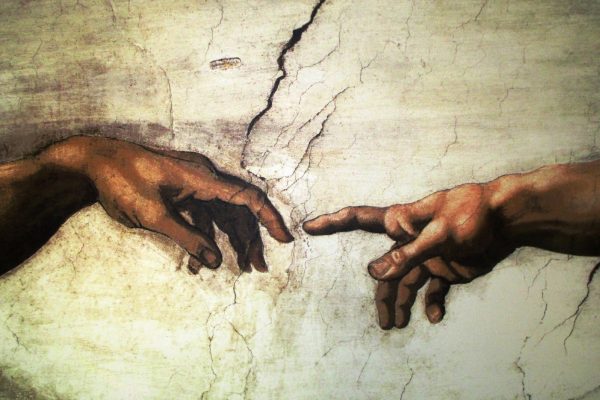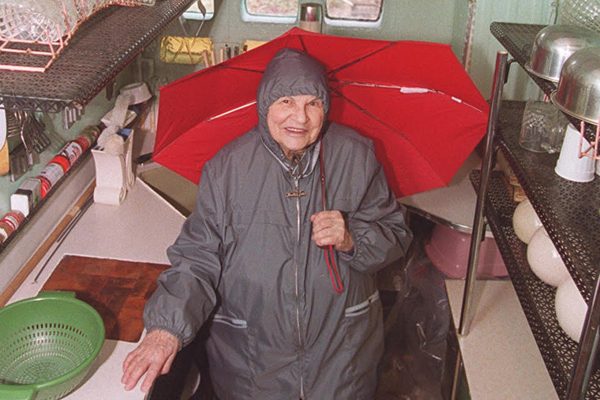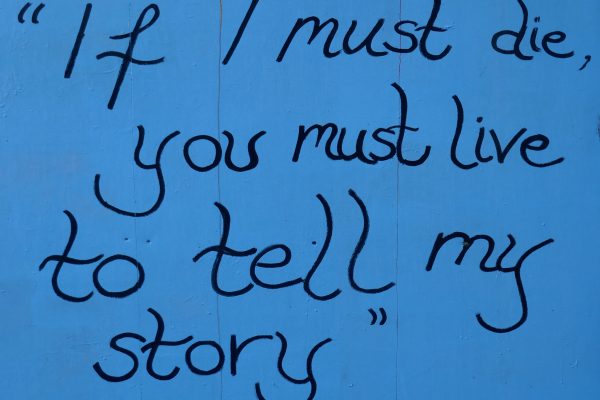Pleasure activism is the work we do to reclaim our whole, satisfiable selves from the impacts of oppression and supremacy. Pleasure activism asserts that we all need and deserve pleasure, and that our social structures must reflect this. In this moment, we must prioritize the pleasure of those most impacted by oppression.
Pleasure activists seek to understand and learn from the politics and power dynamics of everything that makes us feel good. This includes sex and the erotic, drugs, fashion, humor, passion work, connection, reading, cooking and eating, music and other arts, and so much more. Pleasure activism acts from an analysis that pleasure is a natural, safe, and liberated part of life—and that we can offer each other tools and education to make sure sex, desire, drugs, connection, and other pleasures aren’t life-threatening or harming but rather life-enriching.
Pleasure activists believe that, by tapping into the potential goodness in each of us, we can generate justice and liberation, growing a healing abundance where we have been socialized to believe only scarcity exists. Ultimately, pleasure activism is us learning to make justice and liberation the most pleasurable experiences we can have on this planet.
Pleasure activism is not about generating or indulging in excess. Sometimes when I bring up this work to people, I can see a bacchanalia unfold behind their eyes, and it makes me feel tender. I think because most of us are so repressed, our fantasies go to extremes to counterbalance all that contained longing. Pleasure activism is about learning what it means to be satisfiable, to generate, from within and from between us, an abundance from which we can all have enough.
Part of the reason so few of us have a healthy relationship with pleasure is because a small minority of our species hoards the excess of resources, creating a false scarcity and then trying to sell us back our own joy. Some think it belongs to them, that it is their inheritance. Some think it a sign of their worth, their superiority. White people and men have been the primary recipients of this delusion, the belief that they deserve to have excess while the majority doesn’t have enough—and, further, that the majority exists to please them.
A central aspect of pleasure activism is tapping into the natural abundance that exists within and between us, and between our species and this planet. Pleasure is not one of the spoils of capitalism. It is what our bodies, our human systems, are structured for; it is the aliveness and awakening, the gratitude and humility, the joy and celebration of being miraculous.
So rather than encouraging moderation over and over, I want to ask you to relinquish your own longing for excess and to stay mindful of your relationship to enough. How much sex would be enough? How high would be high enough? How much love would feel like enough? Can you imagine being healed enough? Happy enough? Connected enough? Having enough space in your life to actually live it? Can you imagine being free enough?
Do you understand that you, as you are, are enough?
How many of us are trapped in a politically regressive loop of desire?
How many of us—even as we hone a feminist or womanist or post-gender or otherwise radical politics around who we are, relative to power—regress in bed into submission practices we are taught are biological, primal, even spiritual? I suspect many of the most powerful women are still convinced that in bed we need to be dragged by our hair into a cave and ravaged by a lover who plays a traditionally patriarchal role of dominance.
A key aspect of smashing the patriarchy will be examining not just rape culture but our culture of desire. Not with shame or with righteousness but with deep curiosity: What are your go-to fantasies? What turns you on, and can you change it if it doesn’t align with what you believe?
Through attraction we feel for others, media images, and healthy and unhealthy interactions with those older than us, visuals and stories groove a pathway for desire in our brains. We begin to have certain scenarios that turn us on, fantasies of what we want to do or have done to us or witness. Fantasy is often a safe space to desire things that we might never do or allow in real life.
For most of us, this desire-setting happens early, and if we aren’t both careful and creative, we can get stuck in fantasies that don’t mature and politicize with us. We can get caught in fantasies that perpetuate things so counter to our beliefs and values that we feel ashamed of what we want, even as we find ways to get it.
I had a babysitter when I was quite young who liked to watch Porky’s (1981), which I can best describe as a rape culture time capsule from the eighties. My family’s military-issue apartment was small, and I easily snuck out of bed and found a spot from which I took in sexually disempowering images I didn’t understand. I also loved musicals—Grease (1978) and Seven Brides for Seven Brothers (1954) were favorites. As a result of this kind of media, my early fantasy life was often about men taking advantage of skinny women, secretly watching them, trapping them, or women having to change for the desires of men. I thought this was how sex happens, that it centers men, and that we as women should be in a constant state of seducing, playing hard to get, and getting caught by men.
Hence, my twenties. But I learned! To see differently, to imagine differently.
I once got to swim in a body of water where saltwater met freshwater. With goggles on, I could see the subtle horizontal line between the freshwater on top and the heavier, denser seawater below. That visual comes to mind as I think of the cultures in which we swim in the United States. The heavier seawater is our much-defended rape culture, which is fed by fantasies of incest, rape, coercion, boundary transgression, force, transaction, and scenarios where the masculine wields power over the feminine. Floating above that is the culture of repression, often rooted in religious spaces. Repression fantasies focus on purity, innocence, virginity, monogamy, and youth.
These fantasies train us in the gender-normative behaviors that sustain our layered culture. We learn from parents, teachers, extended family, media, religious leaders, and basically all adults we encounter. And, of course, our early lovers, who are often fumbling in their own confusion and learning.
Men learn to be dominant, initiating penetrators: they learn that it’s in their nature to ravish women. Women learn to be coy, dishonest receptacles: we’re taught to say no until the last moment—and then say nothing but yes. Or say nothing and mean yes. Those who don’t fit into this binary construction, or who shift within it in their lifetimes, are often expected to still don these roles in sexual encounters. The lessons are sometimes very direct, other times implied: cross your legs like a lady, save that for your husband, take her like a man, it hurts a little at first, it’s just nature, who’s your Daddy.
Layer into this our intersecting systems of hierarchy—racism, ableism, classism, etc.—and you have a plethora of fantasies that perpetuate and sustain a janky reality. These gendered fantasies shape our very sense of self. How do I fit in this world? Am I desirable? How do I become desirable? What role must I play? Do I take or give?
So few people make it to this question: What do I really want?
From our first moments, we should be encouraged to focus on how our bodies feel, what sensations and interactions awaken us, what feels wrong, what kind of touch feels right, and how to communicate a spectrum of boundaries and consent. Instead, many of us spend our formative years in our heads, learning to be something we are not, unlearning the skills of truth we’re all born with. Eventually our desires are woven so thoroughly with these social norm fantasies that we think that we desire our own disempowerment or someone else’s.
I have been intentionally working on developing new fantasies. Fantasy is where I first explored the impossible idea that I am desirable. The improbable idea that fat bodies, brown and Black bodies, scarred and dimpled bodies, bodies that hurt and lurch and roll, bodies with hair and acne, bodies that sweat and make sounds and messes—that all of our bodies—are desirable. This work has shifted my reality of lovers and my reality of how I see myself and let myself be treated.
And, and, and . . . even as I write this, I won’t tell you all of my fantasies. Some of them are rooted so deeply in my system that I’m not sure I’ll ever let them go—I’m not even sure I want to. But I do want to be able to recognize what is mine and what isn’t, what should stay in fantasy and what is aligned with the world I’m generating—one in which gender is not an indication of power in or out of the bedroom.
On this journey of liberating our desire, we have to look at our relationship to pornography. We should use a harm reduction approach, to learn to look at our practices without judgment, without shaming, but with curiosity and agency. What shapes us as we turn to pornography? How does porn, in turn, shape our real-life desires? And can we use pornography to shape our real-world desires?
I am particularly interested in what our pornographic practices do to our imaginations.
Back in the day, meaning before I was born, pornography was mostly in the form of still images. You looked at a Polaroid of people having sex, a black-and-white still of a woman splayed on a chaise lounge, or a Kama Sutra drawing, and your mind did the rest of the work. Your imagination animated the scene, imagining your fingers moving across the flesh that you never actually saw in motion, building erotic charge. Now, everything is POV, high-definition porn or amateur porn shot on peoples’ phones. You can watch badly acted porn or skip to pounding porn without any storyline. You can tune into live people who will respond to your text requests to touch themselves while you watch. The instant your mind begins to move in any direction of desire, you can type your longing into a search bar and watch your fantasy or something close to it.
Your imagination isn’t really needed.
And perhaps that would be fine if the top searches were “woman on top of someone she could never identify as a family member,” “strapped women taking tender tushes,” “grown-up legal-aged professionals of all genders in hot consensual anti-racist role play.” But we know that they aren’t. In 2016 the top pornography searches for men included “stepmom,” “stepsister,” “mom,” “teen,” and “stepmom and son.” Men also liked videos in the categories of “Japanese,” “Ebony,” and “Asian,” in that order. Women were searching for “stepdad and daughter,” as well as “gangbang” and “extreme gangbang.” They wanted to see “big Black dick,” or just “Black sex” in general, and sometimes “Japanese.” (That appears to heavily overlap with specific kinks like foot worship, breast worship, and sexual games.) And everyone wanted to see “lesbians.” These aren’t the only things people were searching for, but they were the top searches for millions of people the world over according to Pornhub, which at that time was the most visited porn site in the world.
How do we face the truth that our trending fantasies center around incest, underage lovers, racialized power dynamics, and sexual encounters in which women are objects? How do we face ourselves and what we’ve been programmed to desire, especially if it works against our sense of agency and connection and integrity in our real-life sex? How do we move beyond the things we have accidentally come to want and toward our desires to break the intersecting cycles of harm we are in? And how do we face the deeply embedded shame around what we desire? Because while we didn’t create the water we’re swimming in, it’s still poisoning us.
How do we take responsibility for the ways in which we are programming ourselves to participate in rape culture in the deepest recesses of our minds? And that our imaginations are being discarded in the process? What is the consequence of discarded erotic imagination?
I believe our imaginations—particularly the parts of our imaginations that hold what we most desire, what brings us pleasure, what makes us scream yes—are where we must seed the future, turn toward justice and liberation, and reprogram ourselves to desire sexually and erotically empowered lives.
Ideally, porn is a spark for, and an extension of, a vibrant sexual imagination. And just like with fantasy, we may choose to continue watching stuff beyond our politics, stuff we never plan to practice—but this should be an intentional, informed sexual choice.
This begins by examining our search bars, finding our collective dignity. It could also include writing ourselves into original erotica and porn scripts or trying out some new pornographic narratives that are fully feminist, so that we can experience sexy content without some built-in cost of collaborating in our own oppression.
I have begun to see pleasure activism all around me. Pleasure reminds us to enjoy being alive. Our misery only serves those who wish to control us, to have our existence be in service to their own. True pleasure—joy, happiness, and satisfaction—has been the force that helps us move beyond the constant struggle, that helps us live and generate futures beyond this dystopian present, futures worthy of our miraculous lives.
Pleasure—embodied, connected pleasure—is one of the ways we know when we are free. That we are always free. That we always have the power to cocreate the world. Pleasure helps us move through the times that are unfair, through grief and loneliness, through the terror of genocide, or days when the demands are just overwhelming. Pleasure heals the places where our hearts and spirits get wounded. Pleasure reminds us that, even in the dark, we are alive. Pleasure is a medicine for the suffering that is absolutely promised in life.
Pleasure is the point. Feeling good is not frivolous, it is freedom.
Adapted from Pleasure Activism: The Politics of Feeling Good by adrienne maree brown, published by AK Press. Copyright © 2019. Used by kind permission of the author and AK Press. All rights reserved.






